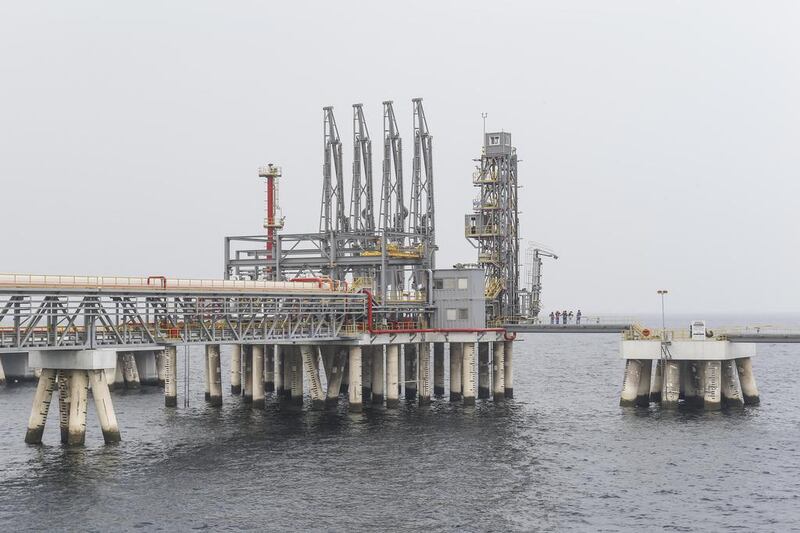Crude oil prices inched higher on Friday morning, finding some traction after remaining largely flat on Thursday, as the US dollar fell to a three-low low overnight.
Global benchmark Brent slipped 3 cents to settle at $64.33 a barrel on Thursday, while US West Texas Intermediate (WTI) crude gained 74 cents, or 1.2 per cent, to settle at $61.34.
By Friday morning, WTI had lifted to $61.64 and Brent to $64.85, as a weaker dollar boosted the appeal of commodities priced in the US currency.
The dollar slipped to a three-year low on Friday, extending overnight losses and pointing towards its biggest weekly loss in two years.
The dollar index against six global currencies lost around 0.2 per cent to 88.378, the lowest since December 2014. The index was on track to lose more than 2 per cent on the week in its largest decline since February 2016.
_______________
Read more:
[ Exclusive: Plans in the works for super group of oil producing countries ]
[ Dollar slips to three-year low, losing against six major currencies ]
[ Exclusive: Opec looks at oil capacity buffers to counter dollar-induced price upswings ]
[ Rise in US shale output will not hamper Opec efforts to clear supply glut ]
_______________
Oil prices are predicted to regain momentum as a result. Oil futures are on course for a 3.9 per cent gain this week, Bloomberg said, recovering almost half of last week’s losses after a global equity rout impacted markets.
Brent futures in New York rose as much as 0.8 per cent, while WTI for March delivery added 48 cents to $61.82 a barrel on the New York Mercantile Exchange and traded at $61.53 at 4.55pm in Tokyo. The total volume traded was about 96 per cent above the 100-day average.
Opec and other producers including Russia have agreed to cut output by 1.8 million barrels per day until the end of 2018 when a deal between them expires.
However, a surge in US production is offsetting Opec’s efforts to curb supplies. US crude output hit a record 10.27 million barrels per day last week, the US Government’s Energy Information Administration said on Wednesday.
Suhail Al Mazroui, energy minister for the UAE, which currently holds the Opec presidency, told The National on Thursday that Opec is encouraging members to build in oil capacity buffers to temper any wild upswings in price due to the weak US dollar this year.
“We are incentivising all the group members to have some buffers. That buffer is [to assure] that if you have a surge [in demand] or issue in one of the countries you can replace that in the market and achieve a short and medium-term re-balance of the market,” Mr Al Mazrouei said.
He also said a framework for a longer-term alliance between Opec and non-Opec producers could be finalised by the end of this year.





